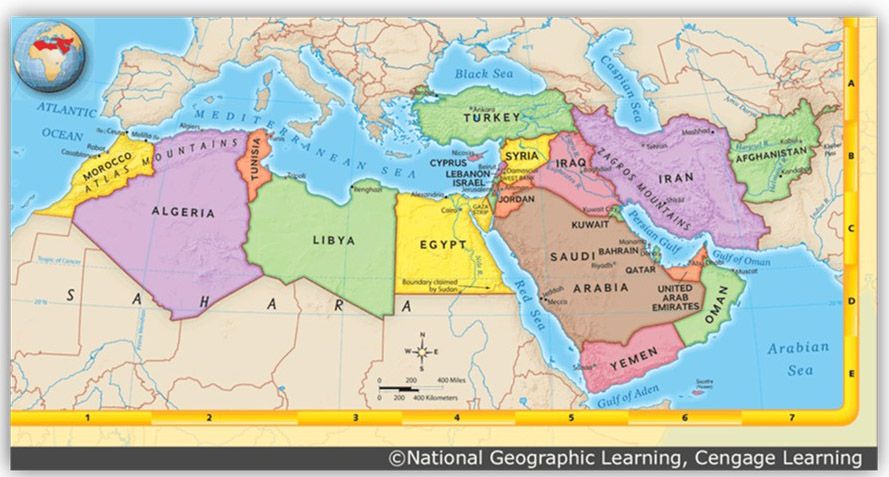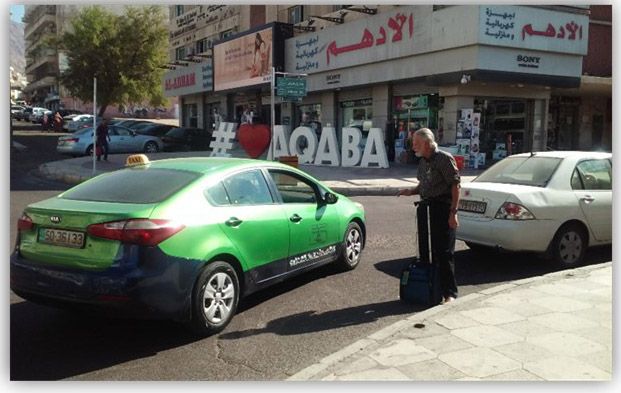How Far Would You Go to Get a New Nose?

When you think of Jordan as a tourist destination, what pops into your mind first? Probably Petra, one of the “New Seven Wonders of the World.” Or perhaps the exotic Mars-like landscape of Wadi Rum. Even its reputation as the “Second Holy Land,” boasting several biblical sites on the east side of the Jordan River, is a reason thousands of tourists come. John even baptized Jesus in the modern country of Jordan.
But for many people, their interest would be in this country’s $1.2 billion-a-year medical tourism sector. Patients from sixty-two countries find their way to tiny Jordan each year for health assistance.[1]
According to a World Bank report, the successful healthcare system in Jordan has achieved number one ranking of being the top provider of medical care in the MENA (Middle East and North Africa) region and fifth in the world.[2]

Why do patients come to this desert kingdom?
One of the prime forces behind medical tourism is the low cost of procedures compared to the United States and many European countries. Saving anywhere from fifty to eighty percent is alluring.
Do you have a bad knee? A total knee replacement procedure in Jordan will cost you approximately $9,000 compared to around $40,000 in the United States. A heart bypass will cost about $11,000 compared to near $100,000 in the U.S. As you can see, even with travel expenses considered, the savings available are quite impressive.[3]
At least 100,000 people came to Jordan seeking medical treatment in the first seven months of this year, according to the head of the Private Hospitals Association, Fawzi Al-Hammoury.[4]
The picture may pop into your mind that traveling to a foreign country for surgery is akin to flying a biplane into the jungle, parachuting out, and plodding along by donkey to a back-alley clinic. That’s not true in Jordan. Most patients will receive high-end care in key urban center hospitals, allowing enough time for recuperation before returning home. And it’s not always major operations. Often, services are for things like dental problems, cosmetic surgery, or a wellness spa.[5] Fertility treatments, weight loss surgery, oncology, cardiovascular treatment, organ transplants are but a few of the reasons patients visit Jordan.
WHY IS MEDICAL TOURISM GROWING?
There are many reasons people are looking for global alternatives for medical care. Some of these include:
· Healthcare costs continually rising
· Millions of uninsured or under-insured people forced to look outside traditional options
· Hospitals, clinics, doctors, and medical tourism facilitators advertising their services
· State-of-the-art procedures unavailable in many locations
· Patients cannot access healthcare due to long wait times and religious or cultural reasons
· People searching for non-FDA approved procedures
· People looking for higher quality medical care wherever it may be[6]
WHO TRAVELS FOR MEDICAL CARE?
There are three broad categories of those seeking to travel abroad for medical care:
- Self-Pay Patients
- Uninsured or Under-insured
- Corporate Insured Market
Self-pay and uninsured/under-insured are self-explanatory. The corporate insured market is individuals who have options through their employer—either for executive physical exams or a company that self-funds its employees’ medical plans and wants to lower its costs and provide better value.

WHY IS HEALTH CARE MORE AFFORDABLE IN JORDAN?
Since we live in Jordan, I can tell you firsthand the cost of living and standard of living are lower. Our own dental bills have been a little less than half what they were in the United States. I made an appointment with an ear-nose-throat doctor and spent thirty minutes in his office for the treatment. The cost: 20 JD ($28.20). I got right in, and he also gave Al a hearing test at no charge. He was not a novice, but a seasoned doctor in his retirement years who had once been head of a military hospital.
In the U.S., physicians must pay exorbitant amounts for liability and malpractice insurance premiums. That doesn’t normally happen here. Salaries aren’t as high, nor are supplies, medications, and hospital fixed costs. In particular, insurance and administrative costs in America are responsible for the lion’s share of the exorbitant price of healthcare.[7]
There are 121 hospitals in Jordan that provide services to Jordanian and non-Jordanian patients. There are seventy-one private hospitals, thirty-three government hospitals, fifteen military hospitals, and two university hospitals.[8]
IS MEDICAL TOURISM SAFE?
Things to consider in considering a medical tourism trip:
· Choose a top hospital that specializes in the procedure you need or has a Center of Excellence.
Check to see if it is certified by an accrediting body such as the Joint Commission or the Health Care Accreditation Council, as well as being affiliated with recognized nationals or international healthcare organizations.
· Choose a competent doctor
Verify your physician’s credentials by checking to see if he or she is affiliated with any U. S. or international professional societies. Consider organizations like the American Society for Aesthetic Plastic Surgery and the American Academy of Orthopedic Surgeons, which offer international membership status for non-resident physicians with the appropriate qualifications.
Request physician credentials from internationally accredited facilities.
Jordan is serious about developing quality healthcare options and has its own accreditation council in place, which is itself accredited by the ISQua (The International Society for Quality in Health Care).
Contact the Jordanian Ministry of Health to make sure your doctor is properly licensed. Many who are trained in North America and Europe have professional affiliations or memberships in these areas.[9]
MEDICAL TOURISM FACILITATORS
Unless you love doing research and are an experienced traveler, you may prefer to use the services of a medical tourism facilitator who will do most of the work for you. You can find one on the internet, but look for companies that are certified by such organizations as the Medical Tourism Association™.
The service they provide usually includes:
· Providing a main point of contact while the patient is at the hospital
· Transferring medical records
· Coordinating video conference calls between patient and surgeon
· Collecting payment (not all facilitators do this)
· Arranging travel logistic services such as passports, flights, lodging and transportation
· Providing price quotes
· Following up with patients after they return home[10]
Advantages
The advantage of using a medical tourism facilitator is obvious.
· One-stop shopping to prevent the patient from having to contact each hospital. The facilitator also makes all travel arrangements.
· Has already vetted the doctors and hospitals, thus minimizing problems with time zones, language barriers, and cultural differences.
· Can transfer patient’s large medical information and image files.
Disadvantages
There are a few disadvantages to be aware of:
· Because these facilitators are all over the internet, it is sometimes hard to figure out which are the best ones.
· They may have a bias toward a certain hospital that may not be in the patient’s best interest.
· Occasionally, having a go-between increases the chances of miscommunication.
· Using a medical tourism facilitator is certainly expedient, but we always pay for convenience. Look for the cost in a hospital commission, service charge (concierge fee), or both.[11]
NUTS AND BOLTS INFORMATION
Visa Requirements
Jordan issues visas to U.S. citizens for a fee upon arrival at most international ports of entry and at most land border crossings. The visa currently costs 40 JD ($56.50) for a single entry. It is valid for three months, and you can extend it for another three months
Most nationalities, especially the USA, Canada, European, and Arab countries, can get the visa upon arrival at any border point or airport in Amman and Aqaba. Tap for more details.

Transportation
· Taxis are everywhere—yellow ones in Amman and green ones in Aqaba. They are very affordable at 2 JD ($2.82) to go anywhere in town one way.
· Public and private buses are available.
· You can always rent a car if you are brave enough to share the road with Jordan’s crazy drivers.
Language
Even though Arabic is the local language, English is extensively understood, with the Jordanian upper and middle class using it as their second language.”[12]
Smoking vs Non-smoking
Do not assume there will be non-smoking accommodations in hotels or restaurants. Jordan has one of the highest rates of smokers in the world. Definitely confirm with the hotel that it has non-smoking rooms.
This blog is an informational summary of the subject. I have drawn extensively from the Jordan Health and Wellness Destination Guide. It is a comprehensive, well-written booklet.
You may also write or call at:
Medical Tourism Association™
10130 Northlake Blvd Suite 214-315
West Palm Beach, Florida, USA 33412
USA 1+ (561) 791-2000
[1] https://drprem.com/medical-tourism/medical-tourism-in-jordan/. Accessed 09/28/2022
[2] https://drprem.com/medical-tourism/medical-tourism-in-jordan/.
[3] Renee-Marie Stephano, https://www.medicaltourism.com/destination-guides/jordan. Accessed 09/28/2022
[4] 08/11/2022. https://www.jordannews.jo/Section-109/News/Jordan-records-100-000-medical-tourists-in-2022-20379. Accessed 09/29/2022
[5] Ibid., https://www.medicaltourism.com/destination-guides/jordan.
[6]Ibid., https://www.medicaltourism.com/destination-guides/jordan.
[7]Ibid., https://www.medicaltourism.com/destination-guides/jordan.
[8]08/16/2022. https://www.arabiaweather.com/en/content/jordan-among-the-top-ten-countries-in-the-world-in-medical-tourism. Accessed 09/29/2022
[9]Ibid., https://www.medicaltourism.com/destination-guides/jordan.
[10]Ibid., https://www.medicaltourism.com/destination-guides/jordan
[11]Ibid., https://www.medicaltourism.com/destination-guides/jordan
[12]Ibid., https://www.medicaltourism.com/destination-guides/jordan
